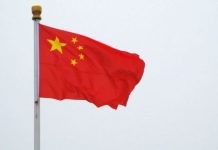By Bai Yifei, People’s Daily
This July, plums produced in Wushan county, southwest China’s Chongqing municipality, were hitting major cities in China, including Beijing, Shanghai, Guangzhou and Shenzhen, via charter flights.
Last year, one flight was scheduled per day for 15 days, and this year, the figures increased to two and 20 respectively.
The expansion indicates growing domestic demand, as well as a trend of economic pickup.
China’s National Bureau of Statistics recently released the country’s half-year economic data. Despite a complex and volatile external environment, the Chinese economy achieved a good start in the first quarter and continued the trend of recovery in the following three months. China’s GDP grew 5.5 percent year-on-year in the first half of 2023.
The continuous sound momentum for economic recovery demonstrated the country’s huge development potential and capability to advance in adversity.
To understand the Chinese economy, one should focus on not only its growth, but also its structure and quality.
China’s GDP growth in the first half of 2023 outpaced both the full-year expansion of 3 percent in 2022 and the 4.5 percent growth achieved in the first quarter this year. In addition, in the first half of this year, the added value of the service sector accounted for 56 percent of the GDP and final consumption contributed 77.2 percent to economic growth. The growth of investment in high-tech industries outran that of overall investment, and the structures of industries, consumption and investment were constantly optimized.
High-tech industries maintained sound growth; emerging industries kept growing; new business forms remained active. Green transition and economic growth have been well coordinated.
China’s economy has maintained growth for four consecutive quarters and the Chinese market has kept releasing its vitality. This well proves that the country has built a more stable foundation for its economy and is seeing stronger momentum for growth. High-quality development is constantly advancing.
The Chinese economy should also be viewed with a global perspective. The United States, the eurozone and Japan all reported economic growth below 2 percent in the first quarter of 2023. Even when the Q2 performance is taken into consideration, China’s economic growth in the first half of this year was still fast among major economies.
It was a hard-won achievement that China secured economic recovery, stable commodity price and stable finance in the first six months of this year when the world still suffered from sluggish recovery, high inflation and slowed global trade growth.
Recently, multiple international organizations including the World Bank and the Organization for Economic Co-operation and Development have uplifted their forecast on China’s economic growth this year, which demonstrates the confidence of the international community in the prospects of the Chinese economy.
The enterprises are always in the best position to tell how the economy is developing. The development of foreign enterprises in China offer an important perspective on understanding the Chinese economy.
Multiple foreign companies have shown their confidence in China’s economic performance through concrete actions. This year, U.S. carmaker Tesla announced that it will build a new mega factory in Shanghai, which will be dedicated to manufacturing the company’s energy-storage product Megapack. European aircraft manufacturer Airbus plans to build its second production line at its site in Tianjin. Multinational pharmaceutical and biotechnology company AstraZeneca signed a deal to expand its investment in Qingdao, east China’s Shandong province.
This indicates from the side that China enjoys broad market prospects and still remains a major engine driving the global growth.
















